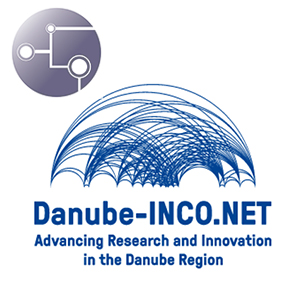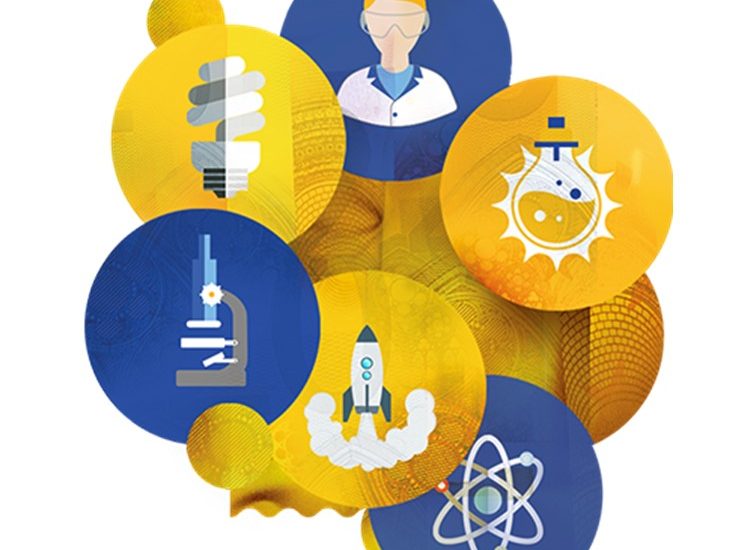S3 Design Learning Workshop Successfully Organised in Chisinau
In the framework of the Danube-INCO.NET project the S3 Platform together with the Academy of Sciences of Moldova successfully organised on February 18-19.2016 in Chisinau, Moldova the first workshop on smart specialisation (S3) strategy design targeted to the EU enlargement and neighbouring countries.
The workshop was attended by nearly 80 participants from Moldova and other non-EU countries such Ukraine, Turkey, Serbia, Montenegro and Bosnia and Herzegowina and representatives of EU countries such Lithuania, Hungary, Romania, Slovakia or Finland who shared their experiences towards S3. The objective of the WS was to enable countries outside the EU to benefit from S3 methodology focusing knowledge-based investments on a limited number of priority areas identified following an entrepreneurial discovery process.
“Improved research and innovation strategies containing an S3 approach could become the drivers of technology upgrading and provide unique competitive advantages for the countries and regions outside the EU.”
Participants were welcomed and introduced to the S3 design learning workshop by Mr. Alessandro Rainoldi, Head of Unit Knowledge for Growth from the European Commission, DG JRC who also moderated several sessions of the workshop. After welcome message by the president of the Academy of Sciences of Moldova, Mr. Gheorghe Duca, the participants were introduced to recent developments in research and innovation sector focusing the science reform in Moldova. The “Research and Development Strategy for the Republic of Moldova by 2020” (please see the presentation one attached below) was presented by Mr. Ion Tighineanu, first Vice-President of the Academy of Sciences of Moldova while Mr. Roman Chirca, director of the Moldovan Agency for Innovation and Technology Transfer focused his presentation on “Disruptive innovation towards over-passing the systemic challenges of a transitional economy.” Participants were welcomed also by the representative of the EU Delegation in Moldova, Ms. Fabien Schaeffer and Centre for Social Innovation from Vienna as coordinator of the Danube-INCO.NET project, represented by Ms. Ines Marinkovic.
Following the introduction into Moldovan R&I sector, Mr. Bernard Brunet from DG NEAR presented in brief the EU instruments supporting economic development in non-EU countries while Mr. Ales Gnamus from EC IPTS Joint Research Centre set the scene on Smart Specialisation by introducing the Smart Specialisation process and the S3 Platform.
During the two days of the workshop the experts from the countries which have already developed their S3 strategies – such as Lithuania or Slovenia – shared their experience on different steps of the S3 process. The key elements of smart specialisation process as well as the main bottlenecks were presented and discussed.
In particular two aspects of the Smart Specialisation process were highlighted – first the inclusiveness of the approach – meaning putting together stakeholders from research, innovation, business, government, civil society and other relevant communities on one table to exchange the knowledge and discuss the priorities. Second, the general change of the mind-set in a country or region. Both seem not to be easily to implement as participants concluded.
Please find below the presentations on the key elements of smart specialisation process and experiences shared by the experts from EU countries:
- Main steps for development of Research and Innovation Strategy for Smart Specialisation (Lina Stanionytė, EC, DG JRC, IPTS, S3 Platform)
- How to convey the S3 analysis: building the evidence base for the S3 (Radu Gheorghiu, The Institute for World Economy, Romania)
- Governance settings for successful S3 process (Jurgita Petrauskienė, MOSTA, Lithuania)
- Entrepreneurial Discovery Process as prerequisite for inclusive and interactive bottom-up S3 (Peter Wostner, SVRK, Slovenia)
- Outwards looking Research and Innovation Strategy for Smart Specialisation (Petri Räsänen, Innovation and Foresight at Council of Tampere Region, Finland)
Subsequently, some of the main bottlenecks identified in designing the RIS 3 were related to
- misunderstanding the economic and social ecosystem of the country / region
- wrong understanding of the S3 as a Research and Development Strategy
- underestimation or misunderstanding of the entrepreneurial discovery process
- not considering the main stakeholders, especially from the industrial and economic sector
In order to facilitate the debate on how the S3 process can help to improve R&I policies and facilitate economic development in order to achieve a better cohesion and integration into transnational value chains, all participants were invited to the “participatory café session” table discussions.
These are the questions discussed in small groups including few ideas for policy recommendations as identified by the participants:
- How to stimulate active participation and involvement fo stakeholders, how to involve business into the process? How to avoid lobby groups of enterprises that will try to push the smart specialisation in the direction of their interest?
- Have all the interested parties involved
- Identify initiator / leader with legitimacy / recognition
- Provide stimulus, arguments to participate
- Involve international peers
- How to create / join networks with other countries and regions?
- Create long term commitment
- Build on “people / human factor”
- Don’t separate business from policy networking
- Put a focus on value creation for partners
- Identify risks ex-ante
- What is the right balance in priority setting: not to narrow and not too broad?
- Motivate the participation
- Ensure the continuity of the process
- Consider the critical mass
- Create connections between the fields
- How to overcome the gap between research and business in smart specialisation strategies?
- Support / motivate the industry to participate
- Identify innovative industries / Support the creation of innovative industry
- Establish trust between industry and research
- Motivate joint steps forward, identify financial motivation
- Create / Develop Transfer Networks
- Set conditionalites for progress
- Organise joint events for business and research
- Identify common interests
Please find below also the related presentations on:
- Main bottlenecks in RIS3 design and how to overcome them (Stefan Vratny, BIC, Slovakia)
- Introduction to the round table discussions and setting the scene to further work in groups (Lina Stanionytė, EC, DG JRC, IPTS, S3 Platform)
On a second day the dicussion focused on the question how S3 process helps transforming economic development. Related presentations / inputs you will find attached are the following:
- The Hungarian S3 strategy: lessons learnt, possible synergies between funding opportunities (Bela Kardon, Regional Centre for Information and Scientific Development, Hungary)
- Experience of S3 priority setting of West Region Romania (Adrian Mariciuc,West RDA, Romania)
- The role of human capital: key elements for innovative regional development (Gabriela Platon, European Training Foundation)
- Integral Innovation from Brain to Business (George Teodorescu, DAC, Germany)
- Smart Specialization in Wielkopolska – towards the economic transformation of regional economy (Monika Matusiak, Centre for Public Policy, Poznan University of Economics & Business, Poland)
- Towards the RIS3 in Catalonia (Ricard Esparza, UAB Catalonia, Spain)
Finaly, opportunities and possibilities towards smart specialisation in non-EU countries were presented and discussed:
- Opportunities of Eastern Partnership Territorial Cooperation Programmes (Erikas Jankauskas, Capacity Building Expert, EaPTC Support Programme)
- Experience of Serbia towards S3 (Djuro Kutlaca, Mihajlo Pupin Institute, Serbia)
- R&I policy in Ukraine (Dmytro Cheberkus, Ministry of Education and Science, Ukraine)
- East Marmara Smart Specialisation Strategy (Cem Bayrak, East Marmara Development Agency, Turkey)
- Strengths and bottlenecks of Moldova’s R&I framework (Gheorghe Cuciureanu, ERA-Watch Expert, IDSI, Moldova)
Conclusions
In his closing remarks, Mr. Sergiu Porcescu from the Center of International Projects Moldova thanked the experts for their valuable presentations and experiences shared and all participants for active participation, expressing his hope that non-EU countries will take advantage of the opportunities offered by Smart Specialisation process.
The official conclusions of the workshop will be prepared by Joint Research Centre and Academy of Sciences of Moldova and will be made available also at Danube-INCO.NET website.
Based on dicussions during the workshop, we can conclude so far the following:
- As the experts from the countries which have already developed their S3 strategies all agreed on – the S3 preparation is a “bumpy road”, however benefits of the process are valuable for a country or the region.
- Each country or a region is unique thus learning from experiencies of others is higly welcome, however the methodology has to be adapted to the needs of stakeholders concerned.
- It is of utmost relevance first to identify all relevant stakeholders in a country or a region and second invite and motivate them to participate in smart specialisation process.
Danube-INCO.NET thanks the Academy of Sciences Moldova and Joint Research Centre for excellent organisation of the workshop.
Information about the workshop can also be found at S3 Platform Website



